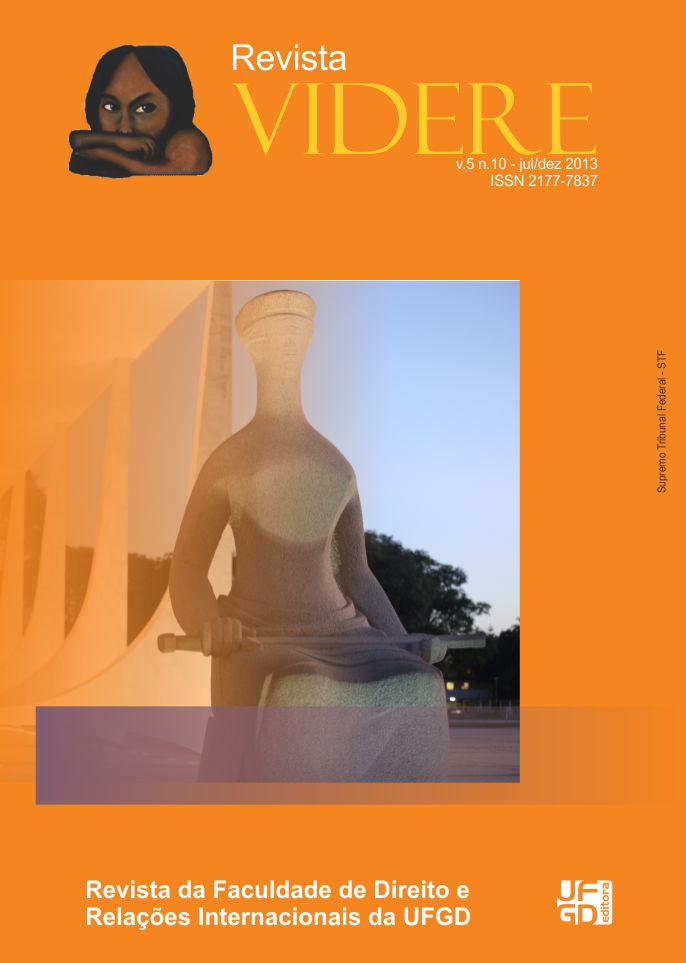A função social do contrato no Código Civil de 2002: aspectos práticos e relevantes acerca do instituto
Keywords:
Contratos. Direitos civis. Função Social. Coletividade.Abstract
Este trabalho trata do instituto da função social dos contratos em sua natureza principiológica, ou seja, a obrigatoriedade da vontade preponderante dos sujeitos de direito (constituindo lei imperial entre as partes) em atender a questões de maior relevância entre a sociedade civil, qual seja: o bem coletivo. Codificada pelo Estado em favor do bem coletivo, se traduz no Código Civil Brasileiro, repouso da disciplina contratual vigente. Entretanto, nada mais forte e perspicaz do que a vontade de partes constituídas num texto contratual, para demonstrar a força do direito emanada da vontade dos indivíduos. A pesquisa objetiva demonstrar a importância da função social contratual na sua confecção, seu reflexo na comunidade social civil, e os mecanismos necessários para sua aplicação. As constatações trazidas se devem à pesquisa bibliográfica feita durante o curso de Direito e a partir da leitura de textos pertinentes. Foram relevantes os seguintes aspectos: a) o instituto dos contratos no direito civil brasileiro se reveste de caráter imprescindível ao exercício do direito subjetivo à celebração dos negócios jurídicos entre sujeitos de direitos dotados de personalidade jurídica, demonstrando a relevância do tema; b) a importância da observação da lei no momento de celebrar negócio jurídico seguro e certo. Este artigo visa a verificar a compatibilidade da legislação atual, acerca dos contratos, com a confecção destes no tocante à observância de sua função social com o objetivo de as relações jurídicas privadas serem realizadas em condição de excelência, sem lesar o direito alheio e social em favor do bem coletivo.Downloads
Downloads
Published
How to Cite
Issue
Section
License
Authors must accept the publication rules when submitting the journal, as well as agree to the following terms:
(a) The Editorial Board reserves the right to make changes to the Portuguese language in the originals to maintain the cultured standard of the language, while respecting the style of the authors.
(b) Authors retain the copyright and grant the journal the right to first publication, with the work simultaneously licensed under the Attribution-NonCommercial-ShareAlike 3.0 Brazil (CC BY-NC-SA 3.0 BR) that allows: Share - copy and redistribute the material in any medium or format and Adapt - remix, transform, and create from the material. CC BY-NC-SA 3.0 BR considers the following terms:
- Attribution - You must give the appropriate credit, provide a link to the license and indicate whether changes have been made. You must do so under any reasonable circumstances, but in no way that would suggest that the licensor supports you or your use.
- NonCommercial - You may not use the material for commercial purposes.
- Sharing - If you remix, transform, or create from material, you must distribute your contributions under the same license as the original.
- No additional restrictions - You may not apply legal terms or technological measures that legally restrict others from doing anything that the license permits.
(c) After publication, authors are allowed and encouraged to publish and distribute their work online - in institutional repositories, personal page, social network or other scientific dissemination sites, as long as the publication is not for commercial purposes.



















